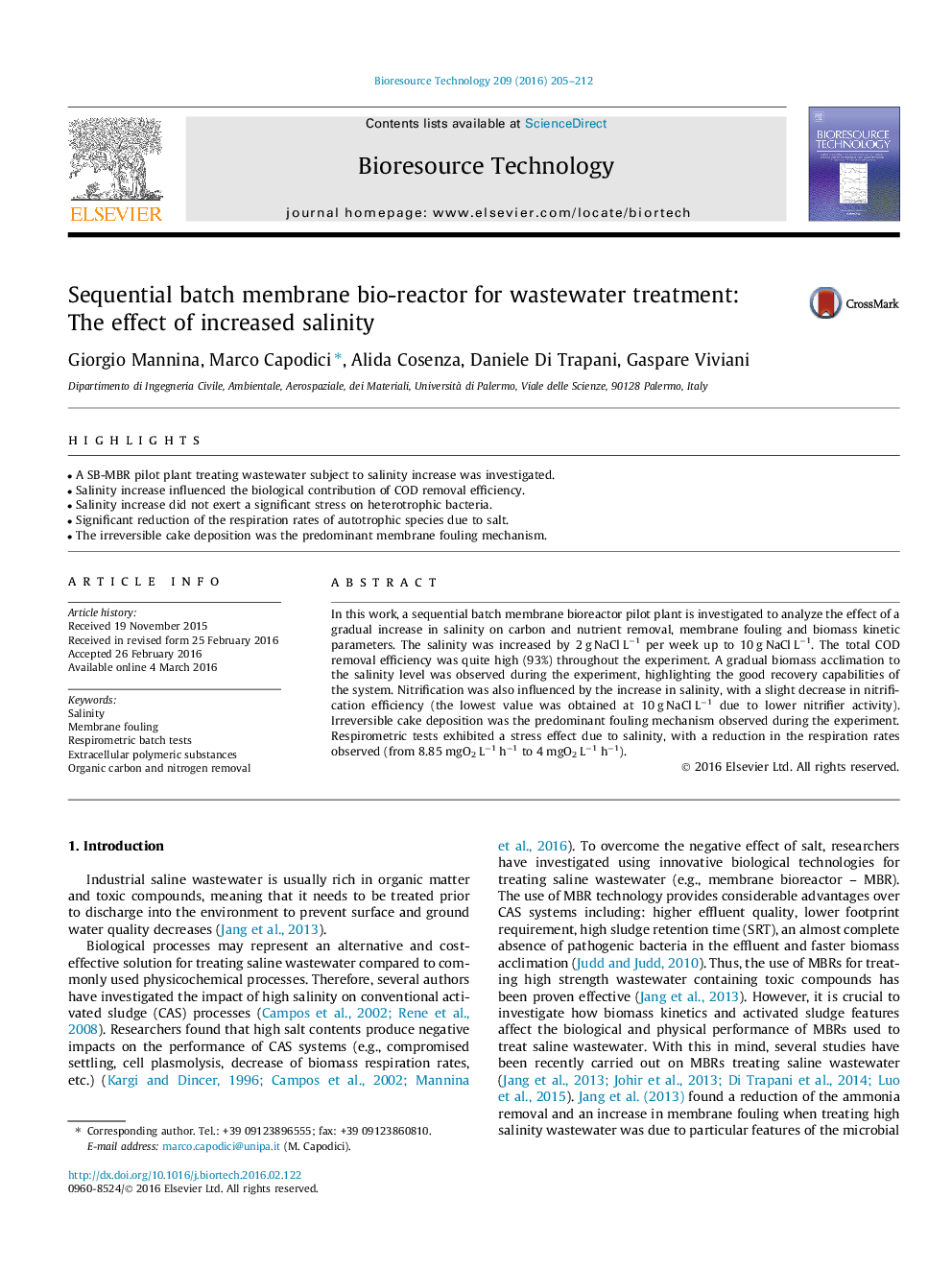| Article ID | Journal | Published Year | Pages | File Type |
|---|---|---|---|---|
| 679179 | Bioresource Technology | 2016 | 8 Pages |
•A SB-MBR pilot plant treating wastewater subject to salinity increase was investigated.•Salinity increase influenced the biological contribution of COD removal efficiency.•Salinity increase did not exert a significant stress on heterotrophic bacteria.•Significant reduction of the respiration rates of autotrophic species due to salt.•The irreversible cake deposition was the predominant membrane fouling mechanism.
In this work, a sequential batch membrane bioreactor pilot plant is investigated to analyze the effect of a gradual increase in salinity on carbon and nutrient removal, membrane fouling and biomass kinetic parameters. The salinity was increased by 2 g NaCl L−1 per week up to 10 g NaCl L−1. The total COD removal efficiency was quite high (93%) throughout the experiment. A gradual biomass acclimation to the salinity level was observed during the experiment, highlighting the good recovery capabilities of the system. Nitrification was also influenced by the increase in salinity, with a slight decrease in nitrification efficiency (the lowest value was obtained at 10 g NaCl L−1 due to lower nitrifier activity). Irreversible cake deposition was the predominant fouling mechanism observed during the experiment. Respirometric tests exhibited a stress effect due to salinity, with a reduction in the respiration rates observed (from 8.85 mgO2 L−1 h−1 to 4 mgO2 L−1 h−1).
